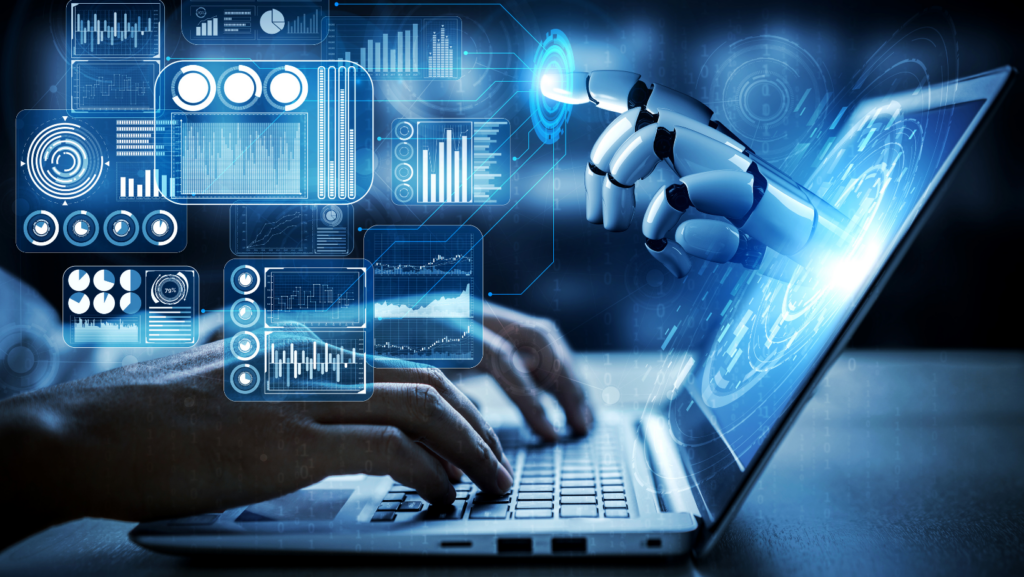Artificial Intelligence: A Sustainable Tool In Educational And Global Economic Growth
- 14 janeiro, 2024
- 2469 views
The popular African maxim."Every morning in Africa, a gazelle wakes up and knows it must run faster than the fastest lion, or else it will be killed and every morning, a lion wakes up and knows it must outrun the slowest gazelle or it will starve to death has taken root in the world since the Advent of ICT and it's migration to every sector of the economy. So it doesn't matter whether you are a lion or a gazelle, wisdom dictates that when the sun comes up, you better be running.
In forging ahead in a technology driven world, bridging the digital divide has become imperative. Africa is a continent full of human natural potentials but when it comes to Internet connectivity and harnessing its numerous opportunities for value, it still faces massive challenges.
However, despite the challenges, there is still hope as the new generation are learning daily that the digital economy has the potential to contribute billions to the continents GDP making it a game changer for the economy according to experts.
They posits that the growing confidence and interest in the tech sector are indicative of the untapped potentials waiting to be unleashed.
For instance, experts has proffered
Generative AI as a Sustainability Tool in the Transformation of Higher Education in a Developing Economy.
According to
Professor Ojo Emmanuel Ademola, with the arrival of chatbots like ChatGPT and the widespread of uncannily convincing AI-generated images, the continent is noticing increasingly panoramic advances in the development of artificial intelligence (AI) in every sector of what is called development with higherr education being just one of many sectors set to be impacted by the changes. With such an aggravated development, he said, the understanding of the uses and limitations of generative AI and how it addresses its challenges and harnesses its potential for higher education is a central of important interest not only to developed economies but capillary to developing economies, particularly in the global south nations.
He defines Generative AI as a subset of artificial intelligence technologies that are capable of creating new content, such as images, text, and even music, that pantomimes human creativity with precise inventiveness impressively.
In all social platforms through videos and photos, this has been used constructively with many not aware of the economic value and how to convert it to a viable stream of income.
For many, it is just a fun tool.
In the realm of higher education, generative AI can be utilized to develop personalized learning experiences, automate administrative tasks, and facilitate research and innovation.
And that is where
Sustainability which encompasses various dimensions, including environmental, social, and economic sustainability comes in. .It involves integrating sustainable practices into the core functions of academic institutions, such as teaching, research, tailored curriculum development, and community engagement. By adopting sustainable approaches, higher education can contribute to the development of a skilled workforce and an improve economy.
Prof. Ademola outlined
ways in which generative AI can serve as a sustainability tool in the transformation of higher education hosting a larger percentage of youths for maximum productivity. They include,
1. Personalised Learning: Generative AI can be used to develop personalised learning experiences tailored to the individual needs and learning styles of students. By analysing students’ data and behaviours, generative AI algorithms can generate adaptive learning materials, recommend personalized study plans, and provide instant feedback, thereby enhancing student engagement and learning outcomes.
2. Curriculum Development: Generative AI can aid in the development of dynamic and responsive curricula that can adapt to the changing needs of the labour market and society. By analysing industry trends, job market demands, and technological advancements, generative AI can help educational institutions design relevant and future-focused curricular offerings that contribute to building a sustainable workforce.
3. Research and Innovation: Generative AI can streamline the research and innovation processes within higher education institutions. From automating literature reviews to generating hypotheses and conducting complex data analyses, generative AI can accelerate the pace of research, leading to breakthrough discoveries and innovations that have the potential to address societal challenges and promote sustainable development.
4. Administrative Efficiency: Generative AI can optimise administrative processes, from admissions and student support services to resource allocation and campus management. By automating repetitive tasks, generating insights from data, and optimising resource utilisation, generative AI can improve operational efficiency, reduce costs, and free up human resources to focus on value-adding activities.
5. Accessibility and Inclusivity: Generative AI can be utilised to create accessible and inclusive educational materials for students with diverse learning needs. Through the generation of alternative formats for content, such as audio descriptions for visually impaired students or interactive simulations for kinesthetic learners, generative AI can enhance the accessibility of education, promoting inclusivity and diversity within the learning environment.
However, in the context of developing economies, additional considerations such as digital infrastructure limitations, resource constraints, and socio-cultural factors must be taken into consideration when deploying generative AI in higher education, he concluded.
Taking advantage of this trend has become mandatory as experts posits.
For NIITDA's kashifu Inuwa, AI can be used in boistering productivity in critical sectors of Africa economy as the world increasingly leverages technology in shaping lives and businesses.
According to him, Artificial Intelligence is already changing daily lives in the ways that improves human health, safety and productivity. He concludes that AI is not just a tool but a new way of building a relationship between humans and machines for global economic growth.
- Categoria:
- Tecnologia
- Organização:
- Clevenard.com.
- Escrito por:
- Idemudia Franca
- Telefone:
- 08060353790
- Sem comentários



